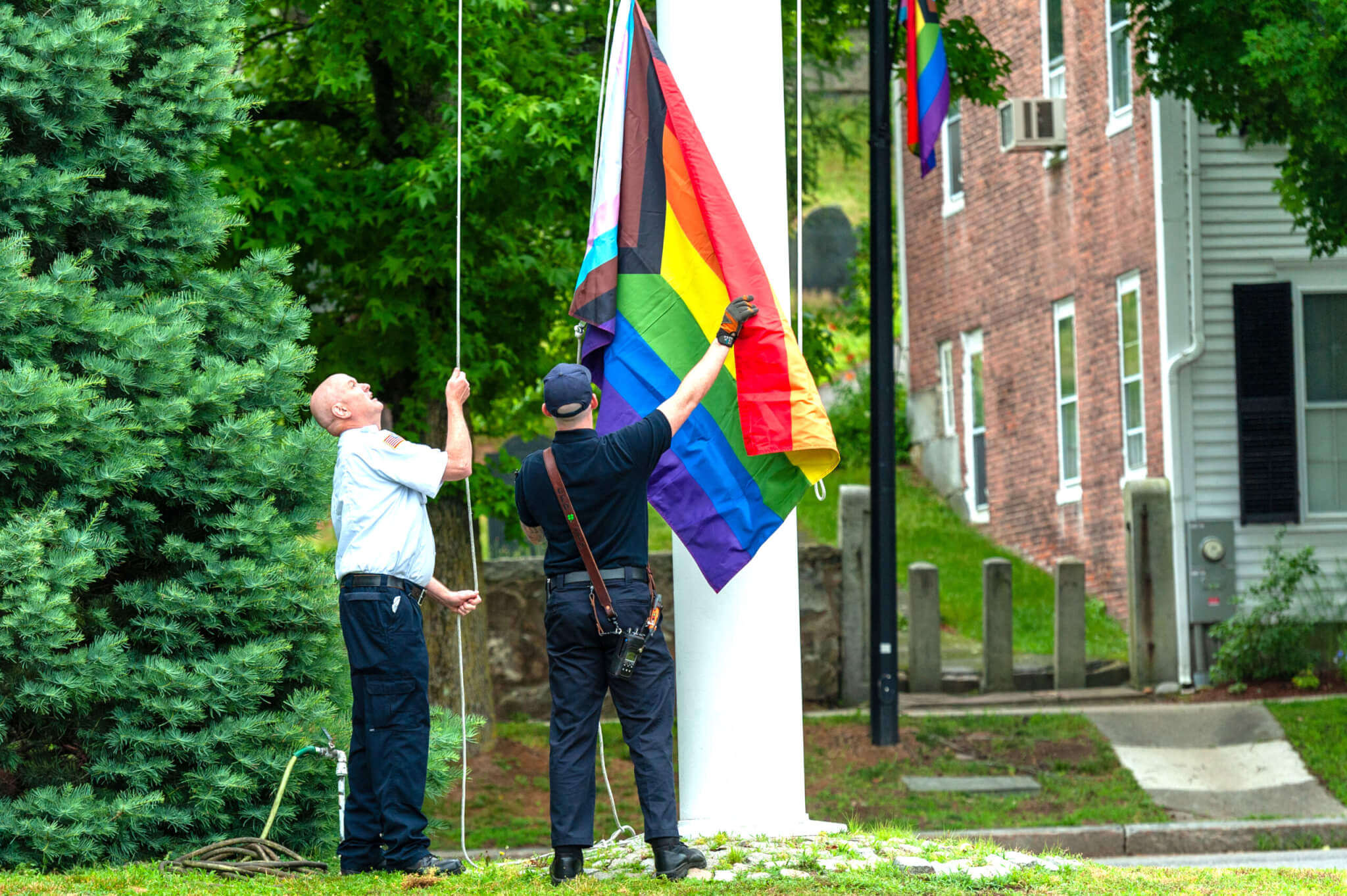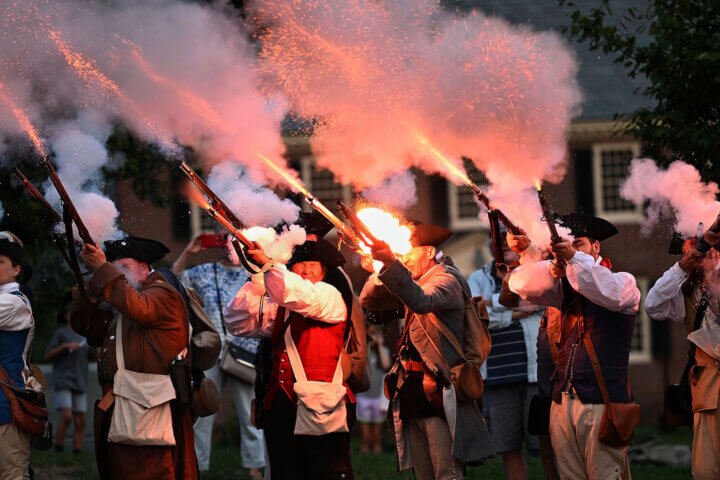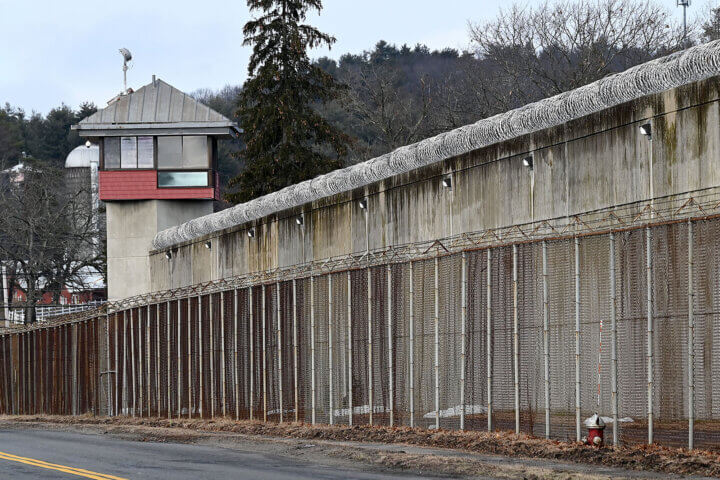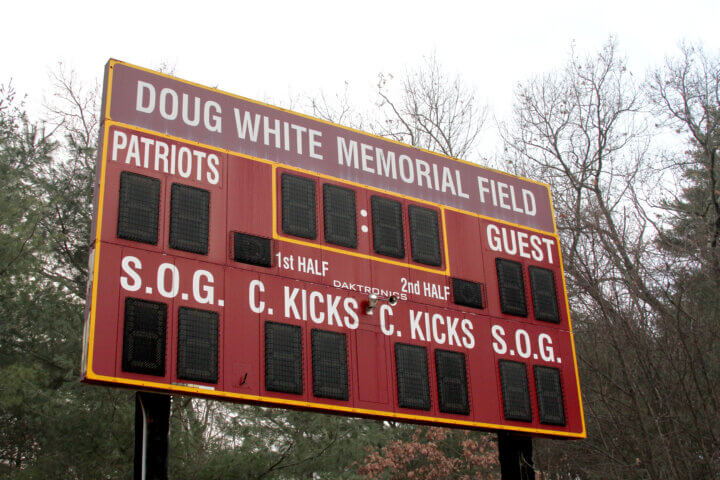By Celeste Katz Marston — Celeste@concordbridge.org
Trying to avoid a slope that could be as slippery as a greased flagpole, the Select Board on Monday unanimously declared a moratorium on outside requests to fly banners.
The pause comes after the Select Board grappled in June with a request to fly the Progress Pride Flag in Monument Square as part of Concord’s first-ever Pride Fest in celebration of the LGBTQIA+ community.
While Board members approved a request to fly the flag of Juneteenth, the federal holiday that commemorates the end of slavery in the United States, they initially voted 3-2 to table the Pride flag request from the town’s Diversity, Equity, and Inclusion Commission for further consideration.
They approved the Pride flag flight two weeks later, but the request touched off a bigger discussion: How can Concord regulate which banners adorn town poles without inviting accusations of bias or setting a precedent it might regret?
Now, “we’re trying to decide this [flag approval] process [in] the abstract at the moment so that we cannot be perceived to be picking and choosing based on what the decision is in front of us,” Board Clerk Mark Howell said Monday.
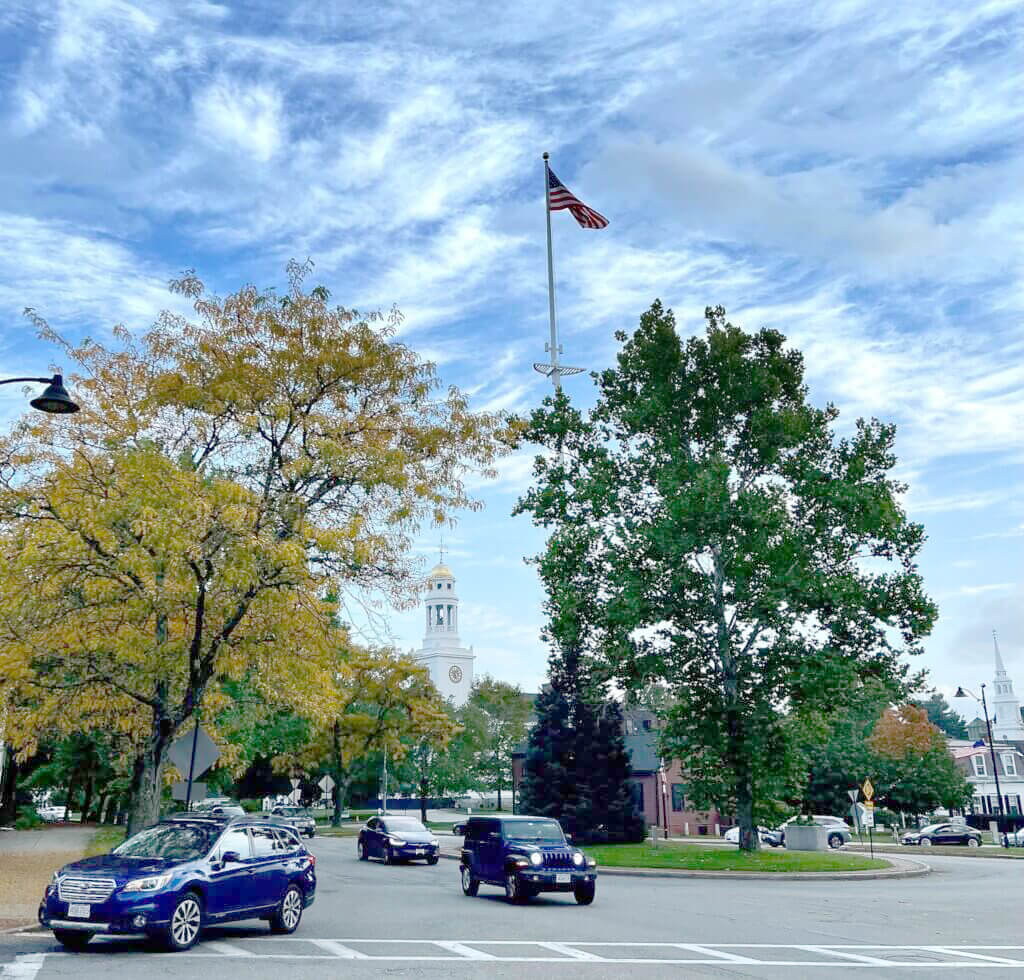
Select Board members made clear in June that in pumping the brakes on making a Pride flag call, they weren’t taking issue with the members of the community — as evidenced by their passage of a proclamation recognizing Pride Fest as a town-endorsed celebration.
Instead, they said they were eyeing the legal tussles of other towns. “Obviously, we’re concerned about some litigation that the city of Boston had,” Rovelli said Monday.
Boston ended up shelling out more than $2 million to settle a case in which they had declined a 2017 request to fly a Christian group’s flag at City Hall. That case went all the way to the Supreme Court.
A banner day?
Wendy Rovelli and Cameron McKennitt, the Board’s newest members, broadly surveyed what other cities and towns do with flag requests. They broke down the results into three options for Concord to consider: Strict restrictions, a well-defined policy, or keeping things as-is by giving the Select Board discretion to accept or reject requests.
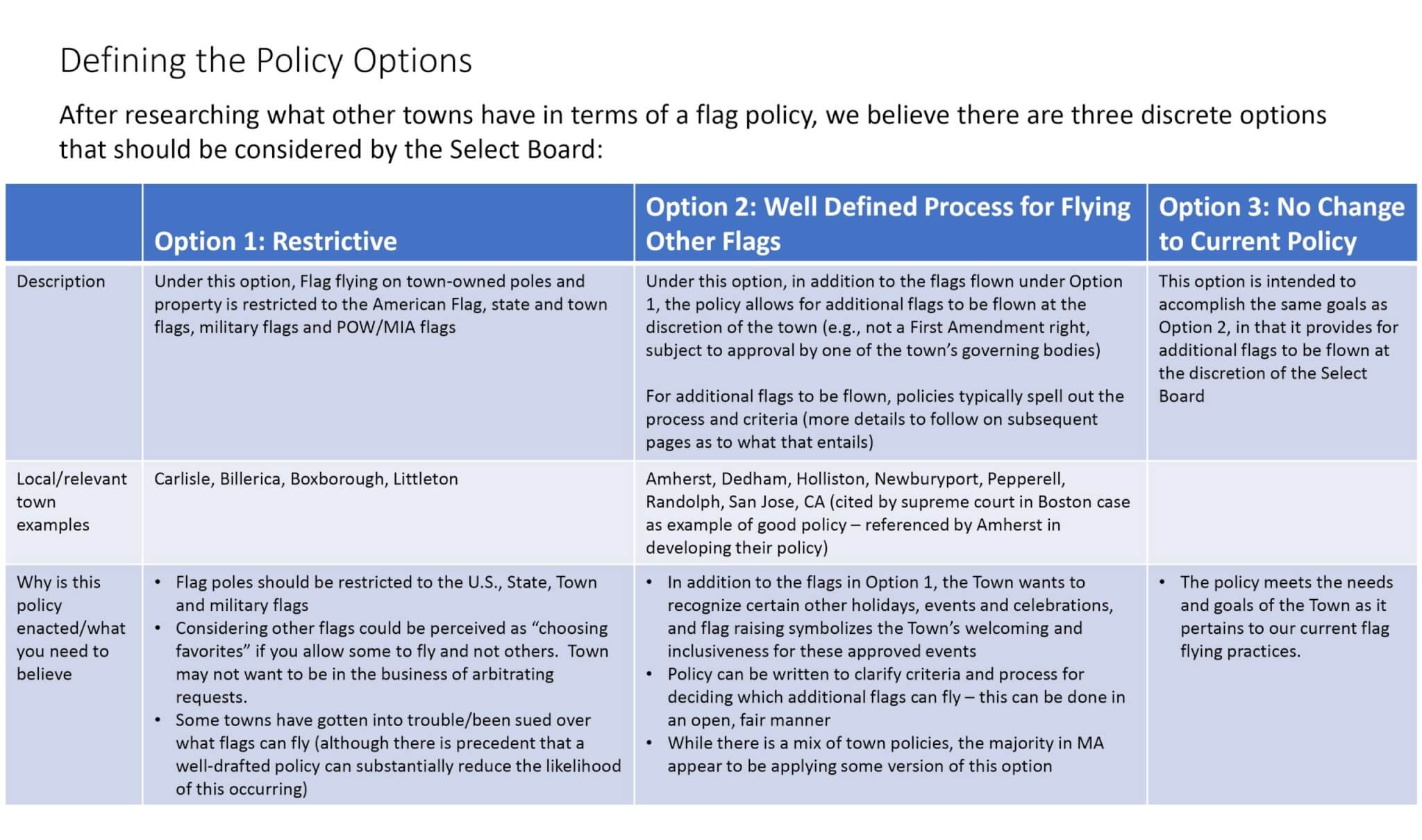
A restrictive policy might allow only the flying of the U.S., state, town, and military flags. (Concord, on certain occasions, also flies the United Nations flag.)
And from one perspective, “It might be easier just to have a very limited list of flags that you might fly, and the benefit of that is that you’re not being perceived as being biased… [It] eliminates that kind of trouble you can get into,” Rovelli explained.
“It’s simple. There’s no real discretion there.”
A well-defined policy, Rovelli and McKennitt said, could include guardrails such as limiting flag requests to a specific flagpole, requiring Select Board sponsorship, tying requests to a town proclamation or event, and mandating a certain amount of advance notice.
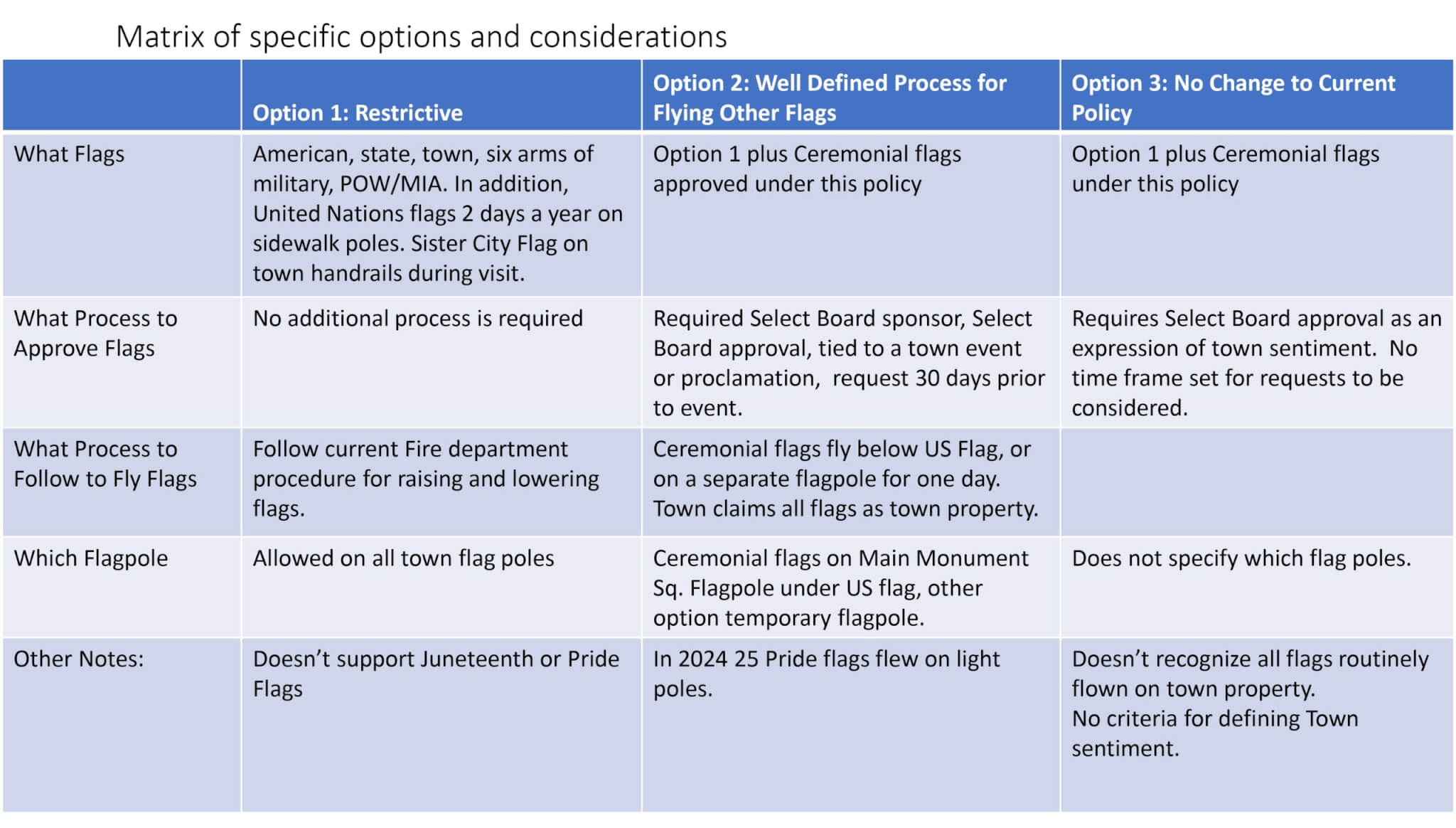
A Concord flag-flying question potentially goes far beyond Monument Square.
According to the board members’ stats, the town has 15 permanent flagpoles that bear the American flag. The Gun House has two poles. The war memorial in Concord Center has a total of nine. The U.S. and POW-MIA flags fly in Kenneth Dunn Square. Plus, there are 65 flag holders on light poles around town.
For requests, “You have some towns that’ll say, ‘We’ll put it on the main flagpole underneath the U.S. flag,” McKennitt said. “There are other towns [that] actually have a separate pole.”
McKennitt said that for special requests, “I personally do feel like from the other flag policies that I’ve seen, I’m in the camp of ‘one flag, one pole, one day,’ like not flying flags on all of our town poles all over the place.”
On a motion from Rovelli, the Board voted unanimously to declare a moratorium on ceremonial flags until a policy is set.


